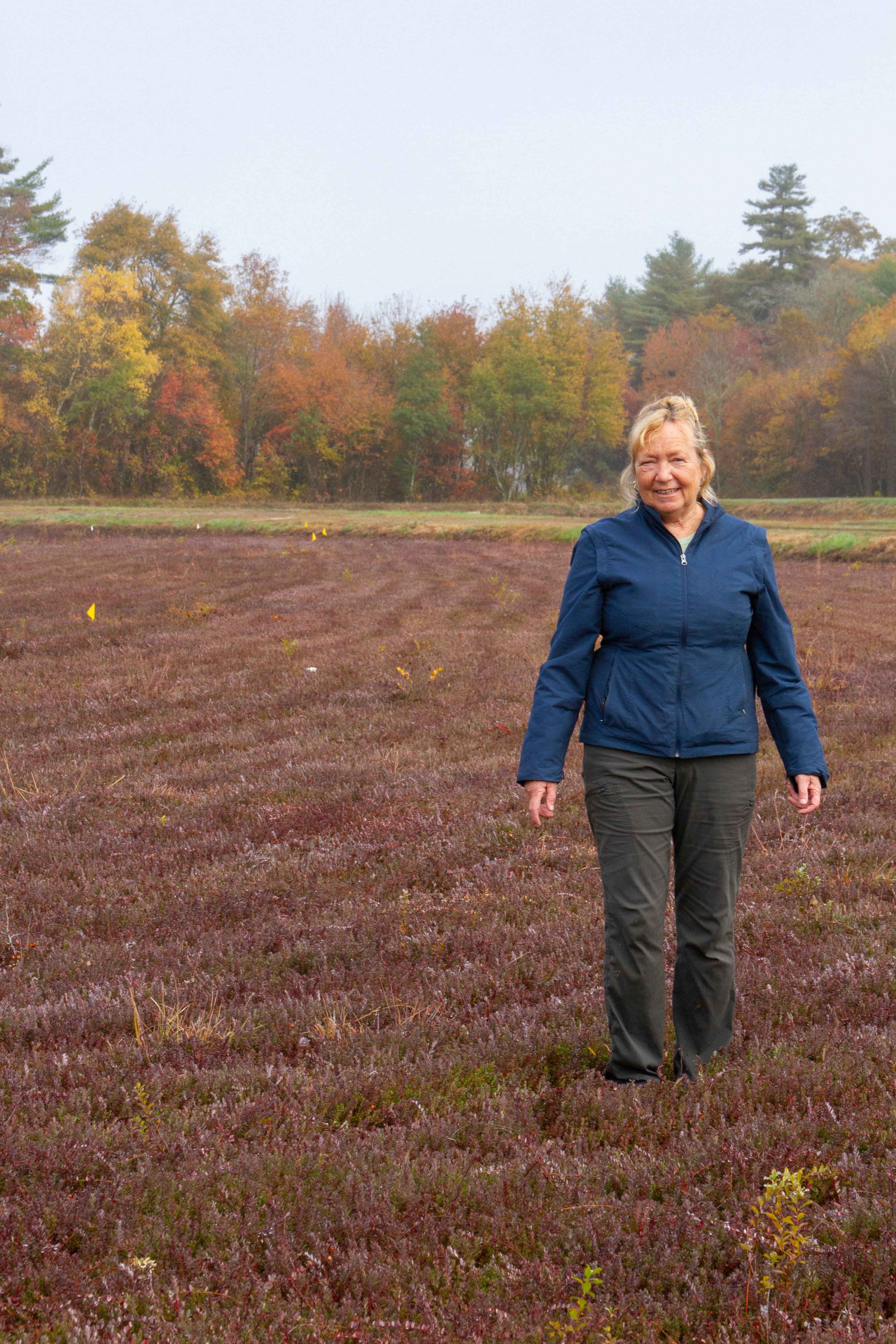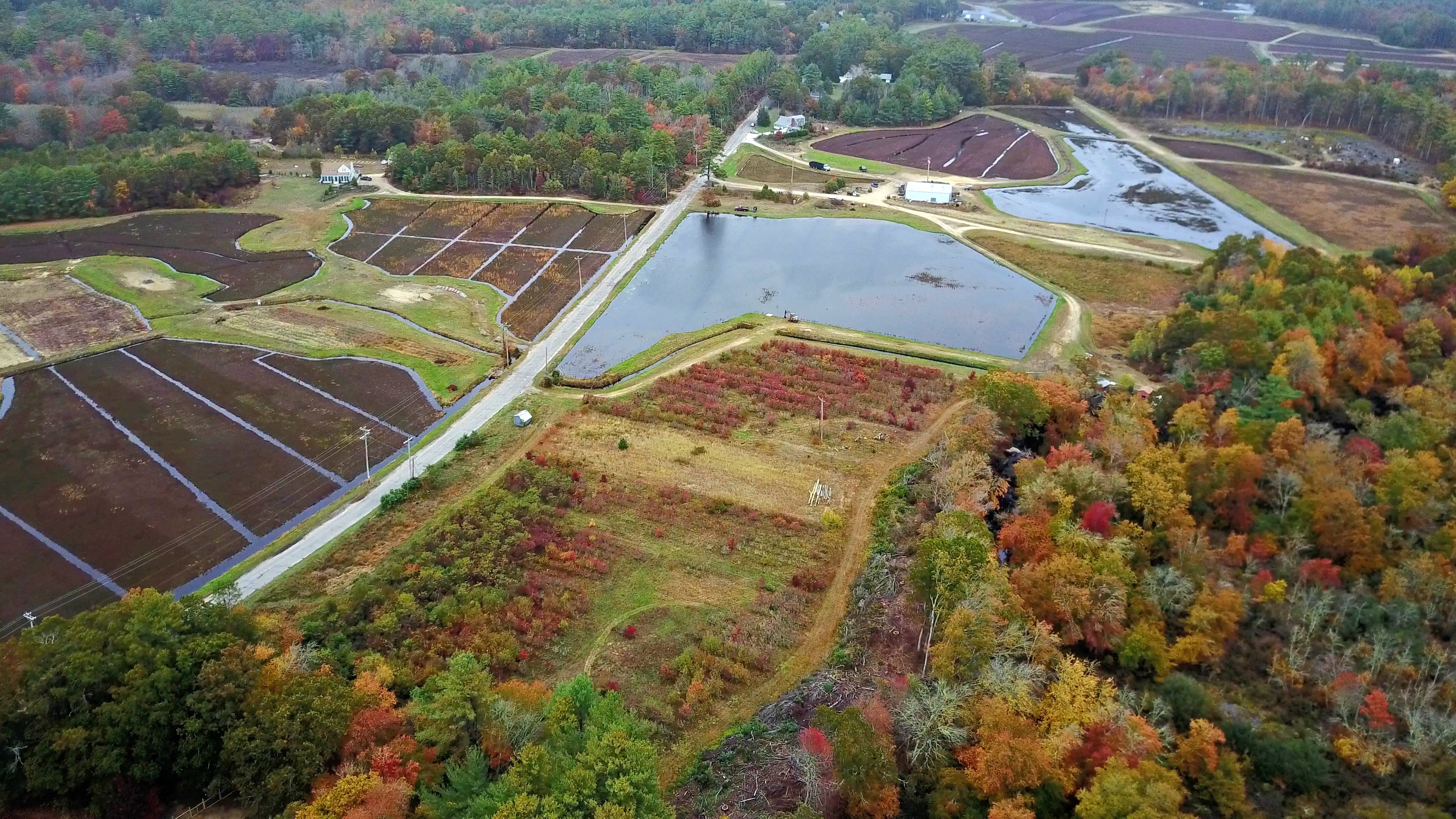Linda Rinta & Rinta Family Farm
Like Aldo Leopold, Linda Rinta sees herself as a “sand farmer.”
She’s a berry farmer and beekeeper with a keen interest in the natural world. Her career, on and off the farm, has advanced the cause of conservation and cranberries.
Linda brought a conservation ethic into her marriage to a third-generation cranberry grower, Paul Rinta. As cranberry farms faced new environmental regulations in the 1980s, Linda returned to college to study environmental science and public policy. She wanted to be part of the change that was affecting their livelihood.
Since then, local, state and national protections for wetlands have evolved. So has Linda’s role as a leader and advocate for conservation farming. Through her work off the farm, and an elected post with the Plymouth County Conservation District, Linda has spent 35 years educating others about how farmers can protect the environment while using natural resources to grow a crop.

Cranberry growing is dependent on available clean water and the ability to store and move it efficiently. Water usage on her farm has been reduced through a renovated irrigation system. In addition, Linda’s efforts led to the adoption of two of the most critical cranberry water-use conservation practices. Tailwater recovery ponds and bypass canals are now industry standards for efficient and conservation-focused cranberry farms.
Linda raises honey bees and has planted acres of habitat for native bees and insect pollinators. She has sought innovative ways to locate pollinator habitat around solar arrays and cranberry bogs, while protecting pollinators from pesticides.
She also grows Cape American Beach Grass as a nursery product on the farm’s wetlands and sandy areas. The grass is used for restorations of sand dunes and other fragile coastal ecosystems.
Linda not only farms with a conservation ethic, but shows others how to do it. Part of her farm business includes a conservation planning service. It helps other growers document their management practices and those they plan to do to comply with environmental regulations.
She’s at home in the cranberry bog and in meetings with politicians and environmental leaders. When speaking with fellow farmers about the importance of providing pollinator habitat next to cranberry bogs, she’s well aware of what it takes to make a living off the land.
Two enormous challenges “hit our family farm like a tornado in 2018,” according to Linda.
“My husband, the manager of our farm, the man who could and did fix everything, and supported and promoted all of my conservation efforts over the years, died without teaching us everything he knew,” she said.
Linda says farming has never been for the faint of heart, but her husband’s death coupled with a steep drop in cranberry prices put the farm’s resilience to the test. One of their grown sons stepped up to manage the cranberry bogs.
Linda manages the property, grows and sells beach grass and will continue conservation planning work. Above all else, she embodies the Leopold land ethic with a commitment to responsible stewardship for the cranberry country she loves.





